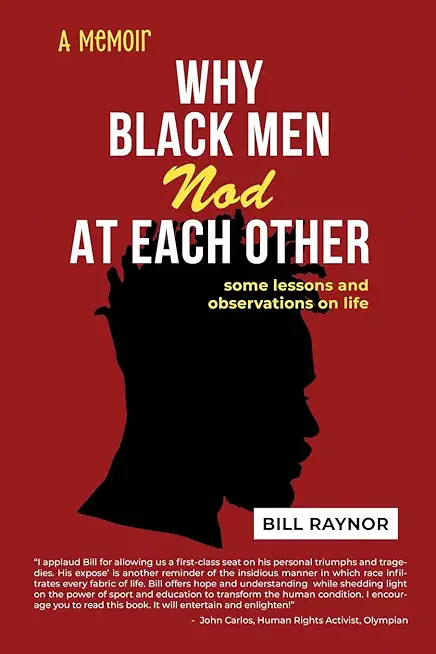
Raynor, Bill
product information
description
of snapshots into his life. The reader is allowed to follow him from Boston's housing projects to the villages of Senegal. Race is a central theme as he provides context to how it intersects with every fabric of life. Bill explores his journey from teaching, coaching, entertaining, and his work with young men of color. The book explores the phenomenon of Black males' connection to each other through their shared experiences of intentional and unintentional institutional racism. Raynor offers personal examples from his time at a private catholic high school to his time at Dartmouth College, his long tenure as a college basketball coach, and his experience as a Director of the Young Men of Color initiative.
Why Black Men Nod at Each Other (and other observations on life) serves as a guide for coaches, educators, administrators, and the growing Diversity, Equity, and Inclusion community. It also provides insight to all interested in better understanding the human condition. The book underlines the inherent landmines of institutional racism and its effect on the dwindling number of Black males in higher education. Raynor's experience in sports articulates the power of athletic competition and the value of team participation. His personal storytelling combines humor with thought-provoking inquiries delivered in an engaging style.
Raynor's reflections are interspersed with his poetry serving to accentuate his prose. He touches upon his thoughts on sports, education, coaching, teaching, writing, religion, addiction, travel, aging, spirituality, and the justice system. The book delivers a potpourri of insights and adventures reflected in his international travel and forty-plus years in education. Raynor's unique journey takes us beneath the surface of how we relate to one another and how in the final analysis we are more similar than different. The layers of human separation have long tentacles and leave enduring scars on the human spirit. This book demonstrates how there is much work that remains to be done in the healing process.
Why Black Men Nod at Each Other (and other observations on life) serves as a guide for coaches, educators, administrators, and the growing Diversity, Equity, and Inclusion community. It also provides insight to all interested in better understanding the human condition. The book underlines the inherent landmines of institutional racism and its effect on the dwindling number of Black males in higher education. Raynor's experience in sports articulates the power of athletic competition and the value of team participation. His personal storytelling combines humor with thought-provoking inquiries delivered in an engaging style.
Raynor's reflections are interspersed with his poetry serving to accentuate his prose. He touches upon his thoughts on sports, education, coaching, teaching, writing, religion, addiction, travel, aging, spirituality, and the justice system. The book delivers a potpourri of insights and adventures reflected in his international travel and forty-plus years in education. Raynor's unique journey takes us beneath the surface of how we relate to one another and how in the final analysis we are more similar than different. The layers of human separation have long tentacles and leave enduring scars on the human spirit. This book demonstrates how there is much work that remains to be done in the healing process.
"From his playing days at Dartmouth to his distinguished coaching career, to his commitment to our young men of color, Bill's personal journey reveals the dynamics of how race intersects with sports, education, and society as a whole. I applaud him for allowing us a first-class seat into his personal triumphs and tragedies. I believe his book will entertain and educate."
member goods
No member items were found under this heading.
Return Policy
All sales are final
Shipping
No special shipping considerations available.
Shipping fees determined at checkout.







